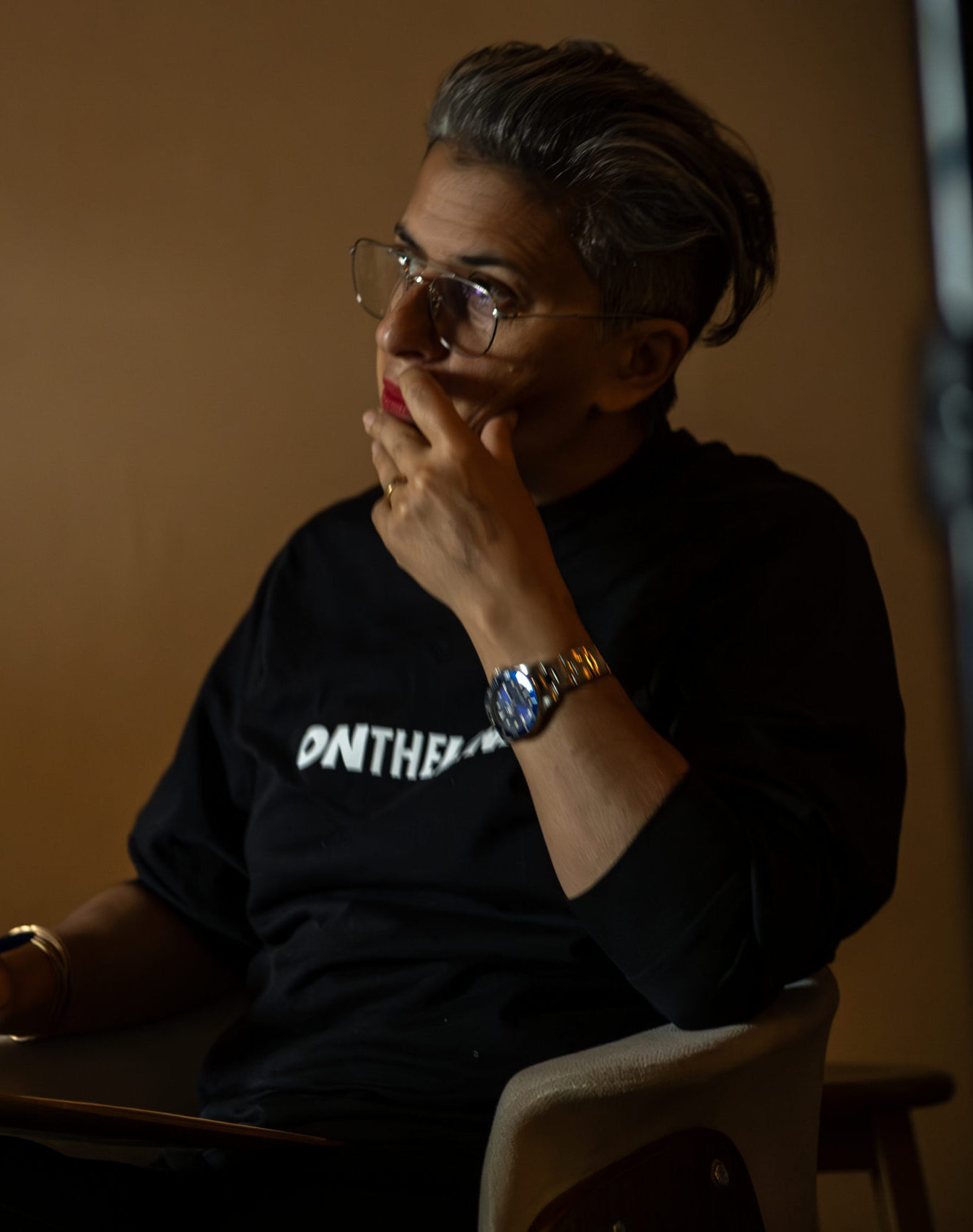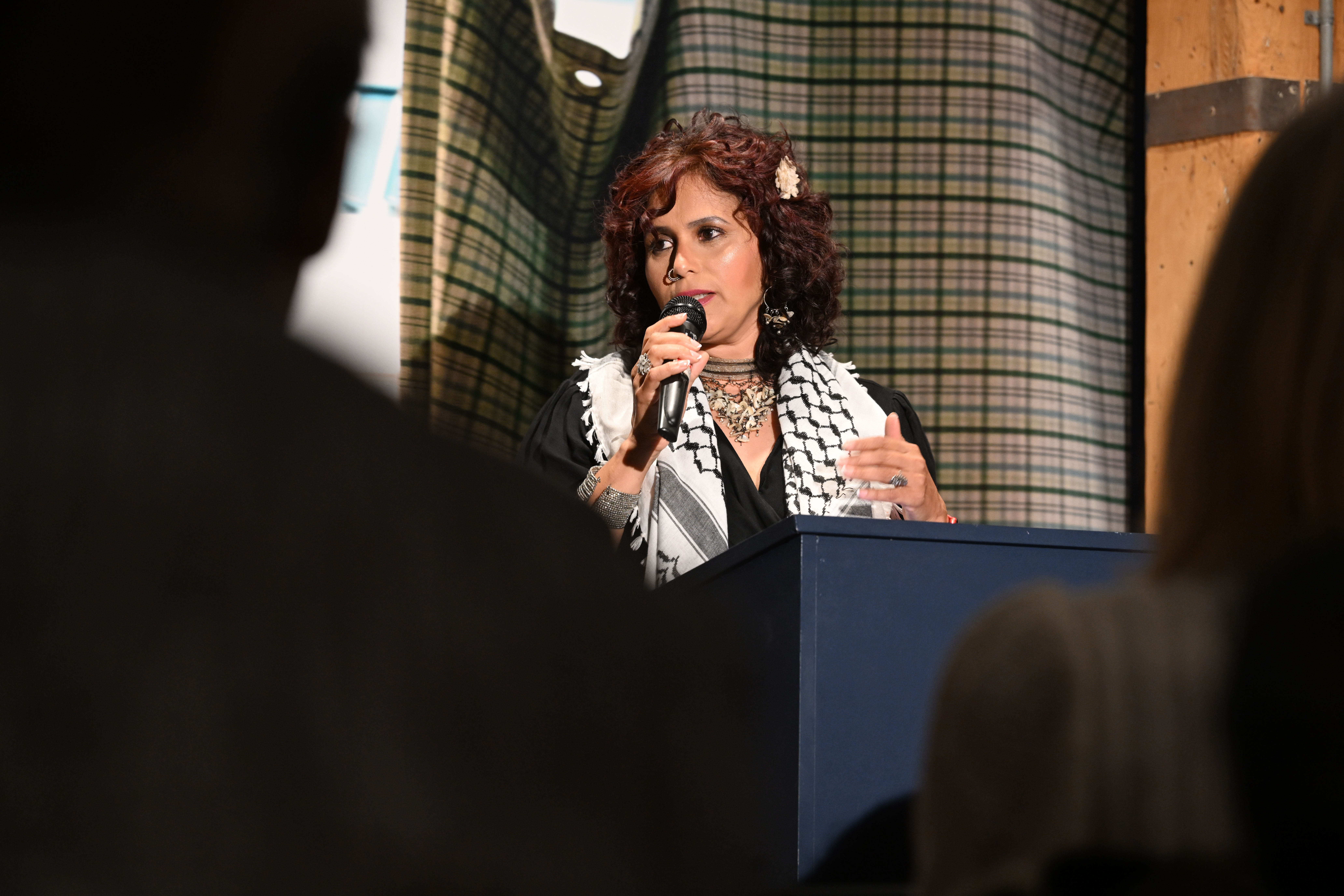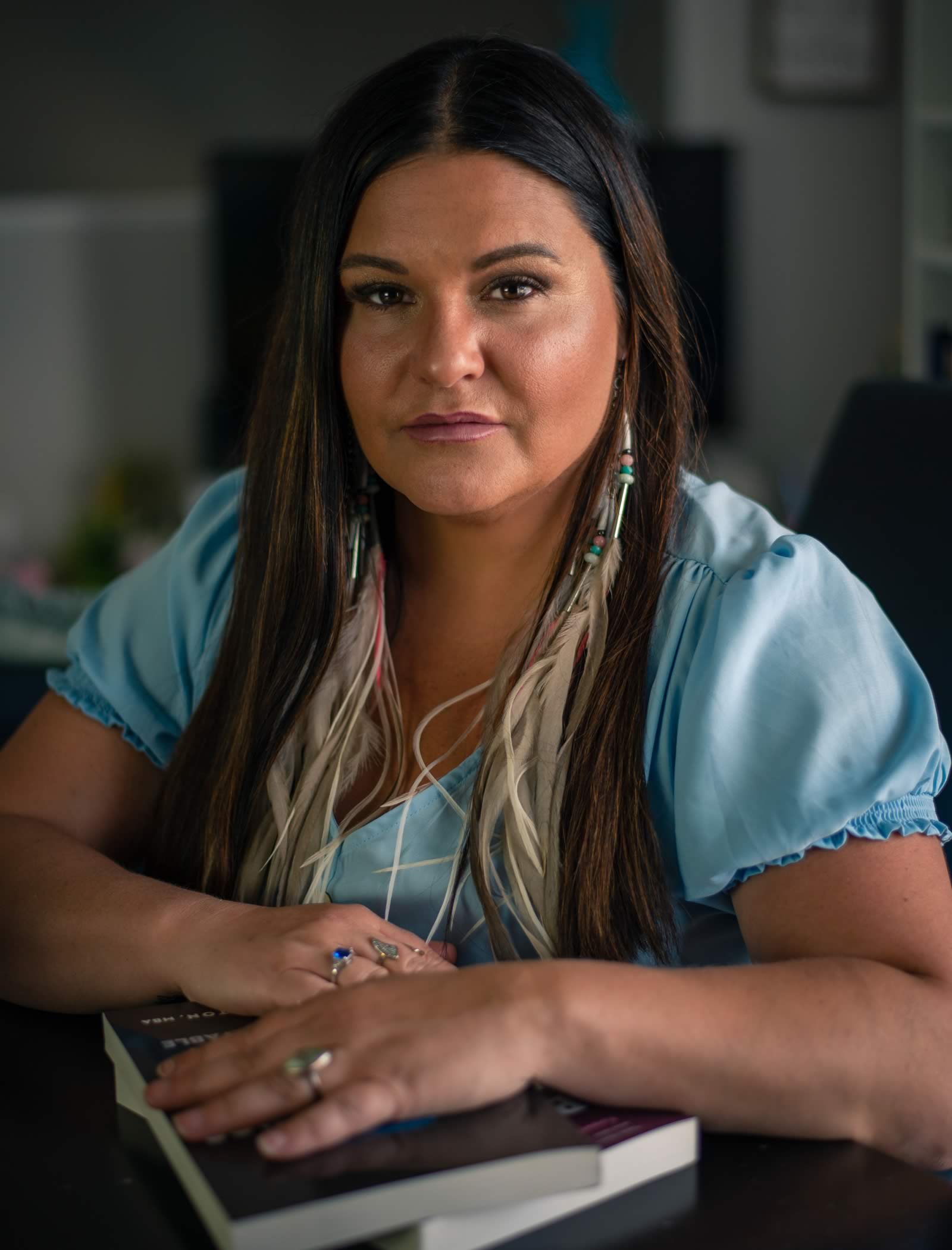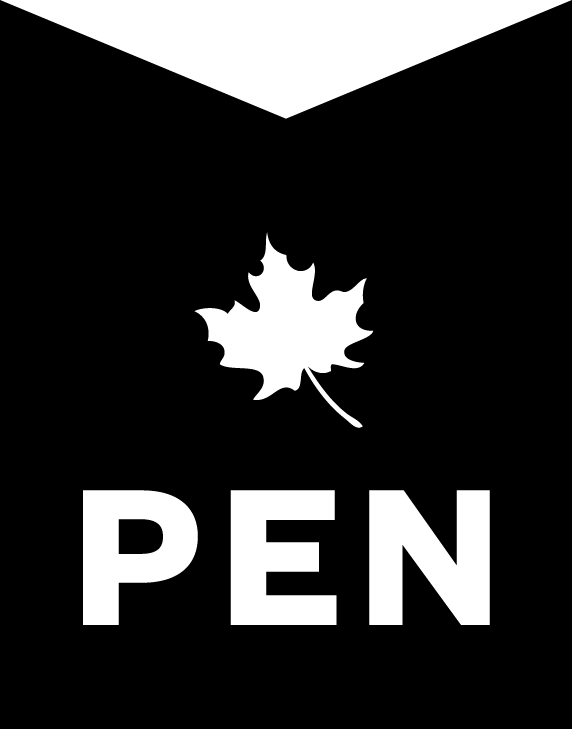Ken Filkow Prize
For champions of freedom of expression.
The Ken Filkow Prize recognizes an individual or institution in Canada who has advanced freedom of expression in Canada, and shown courage in freeing information and ideas from restraint or interference.
The annual award, valued at $2,000, was introduced in 2014. It is named in memory of Kenneth A. Filkow, a former member of PEN’s Canadian and Legal Affairs Committee and former Chair of the Manitoba Human Rights Commission. The prize is generously funded by Cynthia Wine and Philip Slayton.
Who may I nominate?
Nominees may be anyone whose work has advanced freedom of expression in Canada. This may include authors, business people, editors, journalists, librarians, scientists, organizations, professors, publishers, public servants, and concerned citizens, among others.
Nominations are are currently open for 2026. The deadline to submit is Thursday July 2, 2026.
MAKE A NOMINATION2025 Prize Recipient: Samira Mohyeddin
Samira Mohyeddin is an award winning journalist and documentary filmmaker. She has a Master of Arts in Modern Middle Eastern History from the University of Toronto and is a graduate of Genocide Studies from the Zoryan Institute. For nearly a decade, she was a producer and host at CBC Radio and CBC Podcasts. Samira was the 2024/2025 inaugural journalism fellow at the Women and Gender Studies Institute at the University of Toronto. She is the founder and managing editor of On The Line Media, focusing on critical and contextual journalism coupled with intimate conversations and informed commentary.
Jury Citation
Samira Mohyeddin has become a leading voice in Canada calling for the recognition of the fundamental rights of Palestinians while also condemning long-standing violations of Palestinian rights by the government of Israel. Samira has faced threats outside work, an attack on a family business, and death threats as a direct result of her journalism. Two years ago, Samira left CBC Radio to create ON THE LINE MEDIA challenging the consciences of Canadians about subjects that demand attention. Topics include the rights of LGBTQS+, Black Lives Matter, and Indigenous rights among others.
This has been a long, lonely, and above all costly struggle by Samira against those who would silence these and other voices, and the Ken Filkow Prize was created to recognize precisely this kind of work. All are reasons why our Jurors unanimously selected Samira Mohyeddin as the recipient of this year’s Ken Filkow Prize.
Read more in the press release.
Photo by Jay Geerts

Shree Paradkar is a race and social justice columnist at The Toronto Star, where she also served as the first internal ombud in a newsroom in Canada, a position created to develop an anti-racist newsroom. Over the last 8 years, her Star column has tackled divisive, challenging topics, including police violence, anti-Black racism, the persistence of Islamophobia, the threat to LGBTQ+ rights, residential schools, anti-Indigenous racism, and the chill on Palestine advocacy.
Jury Citation
Nominated for this award by her fellow journalists at the Star and elsewhere, Paradkar is regarded as a leader who shines a light on the marginalized and under-represented; her active and committed support of young journalists of colour is fundamental to expanding free expression for those who are often excluded from the means to articulate marginalized experiences of an unequal society. She regularly writes about politically divisive issues, and faces constant criticism and harassment for her fearless advocacy. Her columns have tens of thousands of readers. Paradkar is committed to free expression and she inspires others.
In 2024, the jury also shortlisted two finalists, Saba Eitizaz and Indiginews: Saba Eitizaz is an award-winning multimedia journalist, and the co-host and producer of the flagship Toronto Star podcast, This Matters; Indiginews is an Indigenous-led online publication that practices trauma-informed, culturally relevant and respectful journalism on and by Indigenous people.

Brandi Morin is an award-winning Cree/Iroquois/French journalist, documentarian and best-selling author.
Hailing from Treaty 6 territory in Alberta, Morin’s reporting amplifies Indigenous stories. For over a decade, she has reported on Indigenous land and environmental rights, Truth and Reconciliation, and residential school grave discoveries. Her work is also informed by her experience as a survivor of the Missing and Murdered Indigenous Women and Girls (MMIWG) crisis — an experience she uses to tell stories of those who did not survive the rampant violence.
At the time of the award, her freedom of expression was challenged when she was grabbed and threatened by a police officer in the course of reporting with Ricochet Media — with whom Morin has collaborated for three years — on an environmental blockade at Fairy Creek. In 2021, Brandi was also reportedly the subject of RCMP surveillance along with other journalists, and has faced threats and abuse in the pursuit of her work.
Yet, she persists, committed to reporting with courage and transparency — despite risks to her own safety — for the benefit of all Canadians and Missing and Murdered Indigenous Women.
Jury Citation
Brandi Morin faces threats while reporting Indigenous news in Canada. As recently as August 2023, she was grabbed and threatened with arrest by a police officer while she covered an anti-logging protest in a “media exclusion zone” at Fairy Creek on Vancouver Island. In February 2021, Morin said police stopped her while she was driving away from Wet’suwet’en territory in northern British Columbia, the site of a dispute over an oil pipeline. Morin has a strong sense of social justice, writing and reporting without fear in difficult and even dangerous situations that often place her at risk.
Amber Bracken is a Canadian photojournalist whose work combines photography, journalism, and public service with an emphasis on North American Indigenous communities.
Jury Citation
Amber Bracken‘s ordeal demonstrates that freedom of expression, including freedom of the press, are not as sacrosanct in our country as Canadians might assume. Her courageous work as a photojournalist for The Narwhal magazine, covering the Coastal Gaslink protests in Wet’suwet’en territory in northern BC, resulted in her [and her colleague, documentary filmmaker, Michael Toledano’s] improper arrest and detention. Amber’s story is a case study of the need to protect these fundamental freedoms even in Canada.
Amy Lai is a journalist and legal scholar. She won the Ken Filkow Prize for courageously reporting on the “threats faced by both individuals and democratic institutions” in her native Hong Kong and for her ground-breaking scholarship on freedom of expression.
She had been particularly outspoken since Hong Kong’s pro-democracy movement began in 2019, and after the passage of the controversial National Security Law which notionally grants Beijing the power to prosecute its critics, including foreign nationals, anywhere in the world. Lai’s critical reporting on China’s crackdown on democratic freedoms in Hong Kong has appeared in The Globe and Mail, the South China Morning Post, and in the recently closed Apple Daily tabloid newspaper.
Jury Citation
Amy Lai has advanced freedom of expression in this country by example. She has consistently and bravely stepped forward and written not only for academic publications but also for Canada’s leading newspaper and a widely read publication in Asia. Amy Lai has set out what she perceives as the threats faced by both individuals and democratic institutions in her birth country Hong Kong – now China. Threats that have been repeatedly substantiated in arrests of democracy activists in Hong Kong and in limitation on her own freedom of movement. Her book, The Right to Parody, demonstrates a deeper consideration of the issue of freedom of expression and seeks to tread new ground in analyzing parody, a frequently used weapon in fighting autocratic regimes in terms of both freedom of speech as a “right” and the more prosaic equally powerful question of copyright.
One jury member praised Lai for “considerable fortitude in exercising her right to freedom of expression, not in furtherance of her own goals but in defending the rights of everyone in Hong Kong.” The jury unanimously agreed that “of all the nominees, she best displayed the value the Filkow Prize celebrates, which is to advance freedom of expression in Canada.”
Tim Bousquet is the founder, publisher and editor of the Halifax Examiner, an independent daily online newspaper founded in 2014.
Jury citation
Bousquet is a crusading investigative journalist, fiercely skeptical of government, politicians and business leaders, whose relentless research and fact-rich, long-form reportage has targeted, among other matters, botched police investigations into the murders of dozens of women in Nova Scotia, South African arms trafficking, and financial misdeeds by a past Halifax mayor, calling to account those in positions of power on Canada’s east coast.
Justin Brake is an Ottawa-based reporter for APTN News. At the time of the award, Brake was facing civil and criminal charges for reporting from the Indigenous-led occupation of the Muskrat Falls hydroelectric project site in October 2016.
In 2016, when working as a reporter and writer for The Independent, Brake covered the protests relating to the controversial Muskrat Fall hydroelectric construction project, this included a live-stream of the Indigenous-led occupation of the site. Brake followed activists as they broke through the camp gate and entered the site, and remained as the only journalist to cover the story from inside the camp.
In an interview with the Globe and Mail, Brake said, “I fear that journalists watching my case unfold might be influenced, might be deterred from following such stories. Regardless of whether or not I’m convicted in the end, the chill effect is huge.”
Jury Citation
Mr. Brake showed great courage in staying with the story as it unfolded on the ground. He is showing great courage in fighting against these charges, which are designed to destroy him personally and to frighten other journalists away from fully covering the story,” said judge and former PEN International president, John Ralston Saul.
That a Newfoundland and Labrador Supreme Court Justice would include in his ruling that Brake’s status as a journalist was not a material factor in the case, is deeply worrying. In fact, I find it astonishing that he could have written this. It contradicts both the Charter and the history of freedom of expression in Canada going back to Joseph Howe’s famous defence of free expression in the Nova Scotia court on March 2nd, 1835.
Desmond Cole is a journalist, radio host, and activist.
In 2015, Cole wrote about his experience of being routinely stopped by police because of racial profiling for Toronto Life. The article, later the inspiration for his book The Skin I’m In, earned him a following and Cole continued to comment on issues of race in Canada, often in connection with the practice of police carding, and the Black Lives Matter movement.
In April 2017, Cole’s protest at the Toronto Police Services Board meeting led to his departure from the Toronto Star after its editors told him activism was not compatible with his work as a columnist. The paper was widely criticized for its selective application of its policy on activism, most notably by former Star columnist and activist Michele Landsberg.
“Too often, Canada defines itself by looking out the window at its neighbour,” said Cole, “instead of looking in the mirror. We have to deal with our reflection, however uncomfortable that might be.”
Raihan Abir is an author and blogger from Bangladesh.
Abir, co-author of The Philosophy of Atheism, left Dhaka in June 2015 after the murders of his colleague Avijit Roy, his editor Ananta Bijoy Das, and other secular writers and activists associated with the freethinking website Mukto-Mona.
With the help of PEN Canada, Canadian Journalists for Free Expression and Centre for Inquiry Canada, Abir and his pregnant wife, Samia Hossain, applied for asylum in September 2015. After his immigration hearing in November, attended in solidarity by PEN Canada member Rohinton Mistry, Abir was granted refugee status.
Despite continuing death threats Abir has continued to speak out against religious fundamentalism and seek justice for his murdered friends and colleagues. Abir has given a voice to the victims of religious violence and blasphemy legislation, speaking openly with Canadian media and consulting with government officials.
“He has demonstrated tremendous courage and integrity in defense of freedom of expression,” said Elise Moser, Canadian Issues Chair and prize juror.
Franke James is a Canadian activist, artist, and author focused on the environment, human rights and free expression. She lives in Vancouver, British Columbia.
She received the inaugural Ken Filkow Prize for her tenacity in uncovering an abuse of power, and commitment to fostering a national conversation in the face of censorship.
James discovered she was under censure from the Canadian government while attempting a European tour of her visual essay on climate change. The Federal government cancelled her funding, and through freedom of information requests James was able to prove that the cancellation occurred because “the artists’ work dealt mostly with climate change, and was advocating a message that was contrary to the government’s policies on the subject.” James shared her story in Banned on the Hill: A True Story about Dirty Oil and Government Censorship (2013).
Jury Citation
James’ struggle shows what lengths the government will go to in order to suppress dissent on key policy issues,” said William Kowalski, chair of PEN Canada’s Canadian Issues Committee and prize juror. “It shows what certain leaders will try to get away with when they think no one is watching, and it shows just how important one voice can be when it comes to speaking the truth.
